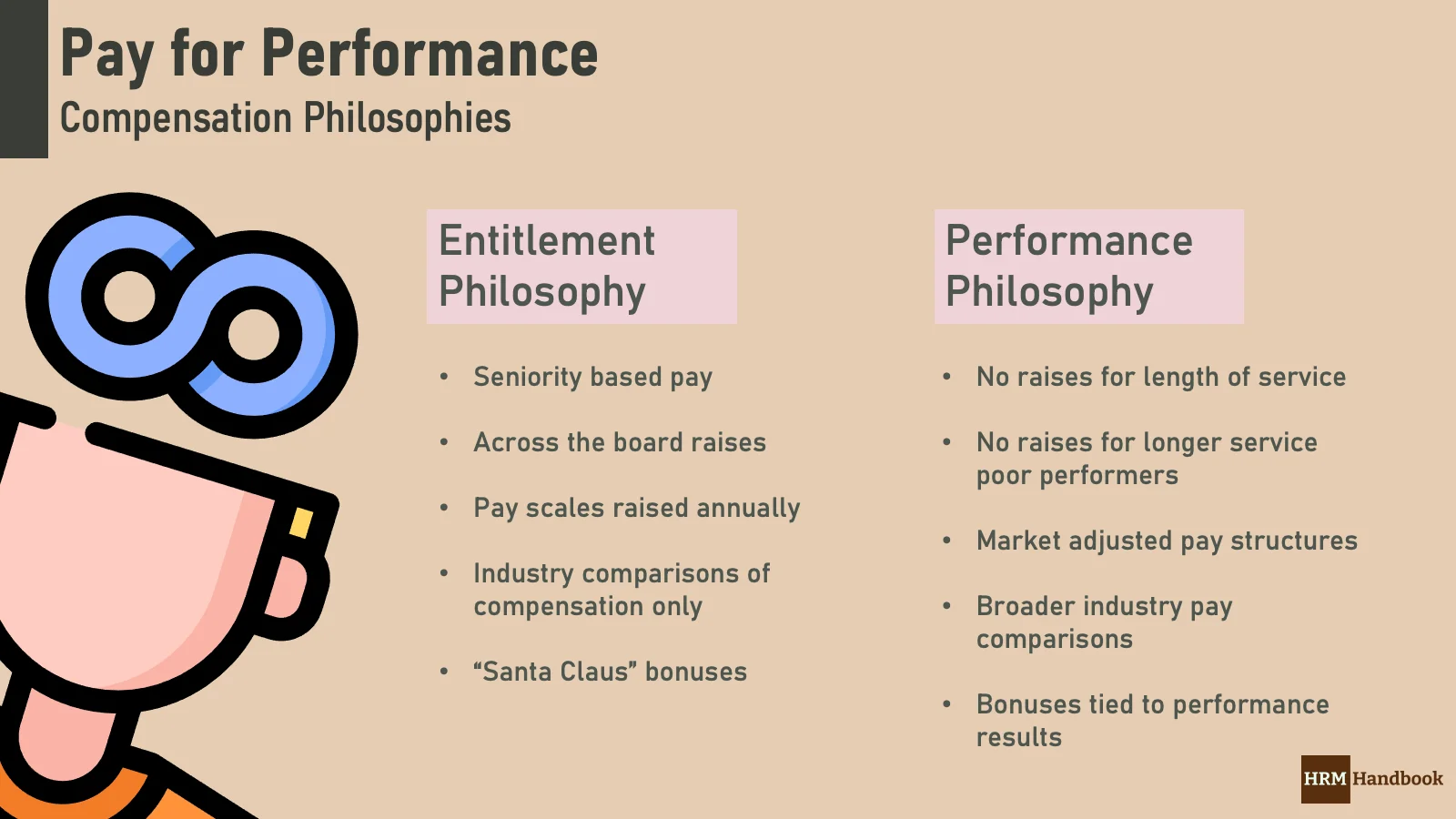Compensation Philosophies
On the continuum, there are two distinct compensation philosophies. On one end of the continuum is the entitlement mentality; on the other end is performance thinking. Most compensation programs exist somewhere in between these two extremes.
Entitlement Philosophy in Compensation and Benefits
The entitlement approach assumes that employees who have worked an extra year are entitled to greater wages, regardless of their performance. Many old-style companies that offer automatic raises to their staff every year adhere to the entitlement principle.
These yearly increases are often called cost-of-living raises, even if they aren’t associated with any economic changes. Furthermore, most employees get the same or similar percentage raise every year.

In organizations where entitlement is common, bonuses are often doled out without much consideration for operating results. As a result, employees come to expect bonuses as just another part of their entitlements.
Performance Philosophy in Compensation and Benefits
The pay-for-performance approach requires that compensation adjustments match achievement differences. Organizations operating under this theory do not promise additional or improved pay for completing another year of employment with the firm. They simply do not provide any merit increases based on the length of the service or employment tenure.
This company structures its pay and incentives to reflect Employees’ individual performances, rather than maintaining uniformity among all members. By doing this, those who satisfactorily perform their duties see greater compensation levels than those who only marginally meet the requirements.
Furthermore, bonuses and other types of incentive programs are based on collective as well as individual successes in order to better motivate individuals within groups or organizations.
Although not all organizations follow performance-oriented compensation methods, the overall prevalence of pay-for-performance systems is on the rise. According to a poll of Fortune 1000 firms, more than 80% of those businesses use some sort of performance-based compensation system.
Individual incentive plans and team/group reward systems, in particular, have been shown to produce greater recent gains than organization-wide gainsharing, profit sharing, and stock option programs. Such plans might assist boost employee commitment and retention by reducing staff turnover. The success of one firm is demonstrated by HR Best Practices.
The total rewards approach is more performance-oriented than the transactional approach, which places a higher value on individuals and their performance rather than simply paying for employment. Managers consider elements such as how much an employee knows or how competent he or she is when determining pay.
Some organizations combine pay and variable compensation systems into a complete rewards strategy for all employees. Various incentive plans, team bonuses, organizational gainsharing programs, and other payment structures are used to link increments in pay and variable compensation to outcomes.
By frequently talking to employees and managers about the company’s compensation philosophy, you can help remind them of the organization’s dedication to it.